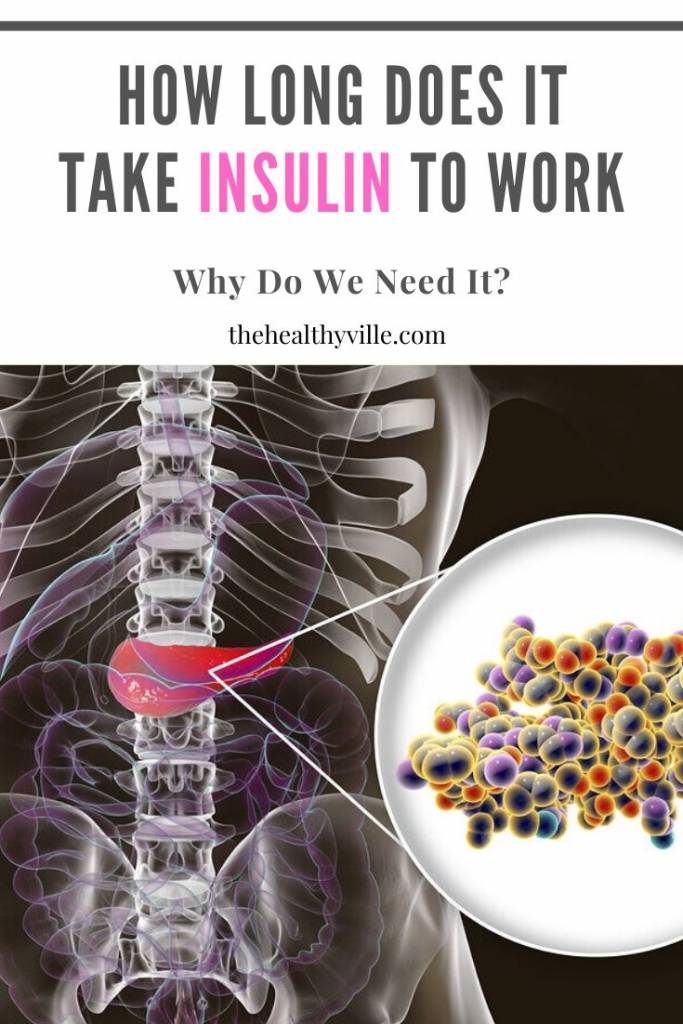How long does it take insulin to work? What is it actually? Why do diabetics need it? Can we live without it? Find out all the answers on time!
Insulin has a leading role in diabetes, since the body stops producing it or is not able to use it correctly. What else should you know about it? Here we detail it.
Everyone has heard about insulin, but the truth is that few people know what it really is and what its function in our body is. It is a hormone synthesized by our pancreas.
Insulin is the »key» for the glucose present in the blood to pass into our cells. Glucose is the essential nutrient of our cells; from it, they obtain the energy necessary to perform all their functions.
People know insulin for its role in diabetes. Diabetes is a disease in which our body fails to synthesize or optimally use this hormone, so blood glucose levels increase. This is harmful to tissues and organs.
Diabetes has been increasing in incidence in recent years, affecting almost 9% of the world’s population. Therefore, in this article we explain everything you need to know about insulin, since it has a leading role in this pathology.
How long does it take insulin to work?
Insulin is a hormone that is produced in the pancreas, specifically in cells called beta cells. These cells synthesize insulin so that the rest of our tissue cells can incorporate and store the glucose we eat with food.
This step is essential, because without glucose our cells are unable to obtain energy. Therefore, they could not perform their duties without it. It is important to know that, in addition, the pancreas produces insulin in two different ways.
Insulin is produced in the pancreas, specifically in cells called beta cells.
First, the pancreas releases insulin continuously and slowly. This allows blood glucose levels to always remain stable. This fact is very important, since both very low and very high blood glucose levels put our health at risk.
On the other hand, beta cells in the pancreas also release insulin quickly. This allows, when blood glucose levels rise through meals, the concentration returns to its normal state.
The adequate concentration of blood glucose is between 70 and 100 mg / dl on an empty stomach. As we have already mentioned, when levels fall below 70, a situation called hypoglycemia occurs.
Hypoglycemia produces symptoms such as nervousness, instability, loss of consciousness, and so on. It is an urgent situation that puts life at risk.
Similarly, when glucose is maintained above 100 mg / dl on an empty stomach, there is surely a problem with insulin. This is where diabetes appears: cells cannot use glucose and their levels rise in the blood.
What happens in diabetes with insulin?
It is important to know that there are two types of diabetes: type 1 and type 2 diabetes. The main difference is that in type 1 the pancreas cannot produce insulin. Therefore, these people need injections of this hormone to use glucose.
In type 2 diabetes, what happens is that our body cells create insulin resistance. That is, the pancreas does produce it but the cells cannot use it.
Insulin is, therefore, one of the main treatments of diabetes. It is usually used as an intramuscular injection. But, in order to use it as a treatment, it is necessary to know its main characteristics.
In patients with diabetes, insulin is usually given through an intramuscular injection.
First, the start time must be taken into account. It is the time that insulin needs to reach the blood and begin to take effect. In the same way, it is important to know the duration of its effect.
In addition, we must also have the maximum action point of insulin injection. It is the moment in which insulin has its greatest power of action by lowering blood glucose levels.
All these parameters are important to be able to calculate the moment in which a diabetic should take the injection. It is a complex thing to understand, but the doctor always makes the appropriate explanations so that no complications occur.
In conclusion
The insulin is a hormone produced for the pancreas. It allows the glucose we get from food to pass into our cells. It has a leading role in diabetes and, in fact, is also usually part of the treatment of this disease.
Don’t forget to SHARE how long does it take insulin to work and why we need it with your friends and family on your social networks!

